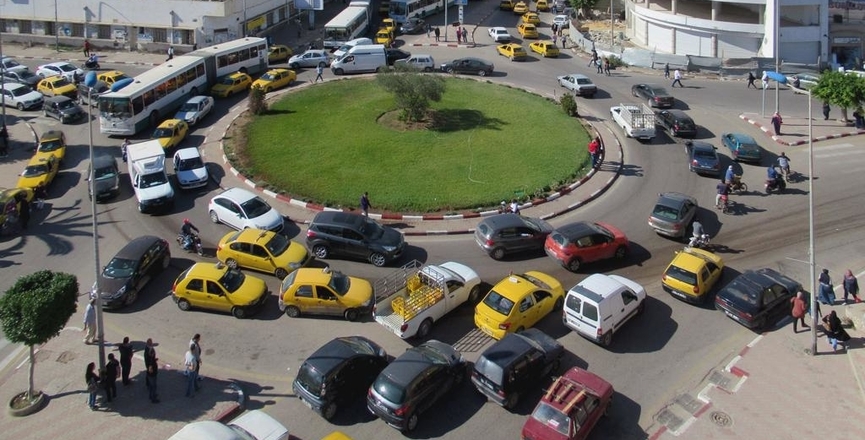A few years ago, I went to Tunis, Tunisia, my hometown, for a short visit in the month of December. It had been almost 20 years since I visited in the winter. My visits were usually in the summer so my children could go to the beach and enjoy the warmth of the Mediterranean sun.
But with each visit, I found the summers becoming unbearably hotter. The last time I went during the summer, I had to keep the air-conditioning unit in each room working almost all day, and my children refused to leave the house, which defeated the purpose of the outdoor summer activities.
I grew up in Tunis and spent my first 20 years there. The temperatures frequently reach 40 C, and sometimes beyond, especially between mid-July and mid-August. Opening the windows at night might help, letting a light breeze refresh our sweating bodies. During the day, we keep our home darkened by the window shutters, and draw the curtains to create a cooling effect. We never had an air-conditioning system.
Over the years, those tricks became useless, as the temperatures rose higher and higher, and the rise came with a new phenomenon: the car pollution. From the early ’90s, an increasing number of cars filled the streets of the crowded city. Thus, creating a sense of suffocation and the near disappearance of breeze.
In 2013, there were 1.7 million registered vehicles in Tunisia. Compared to over 35 million registered vehicles for a population of 37 million in Canada, the number of registered vehicles relative to Tunisia’s 11.6 million population might seem low, but we are talking about a network of 19,418 kilometres of road in Tunisia (as of 2010) compared with a network of roads of over one million kilometers in Canada (as of 2008).
In 2016, Tunisia emitted CO2 emissions of 2.6 tonnes per capita. In 2014, Canada emitted 15.2 tonnes per capita.
Even if statistically speaking Tunisia is less polluting than Canada, the concentration of pollution in Tunisian cities combined with poverty, a weak public health-care system, crumbling infrastructure and dense urban areas make the population more at risk for pulmonary diseases.
The hotter the weather during the summer, the more air-conditioning units are installed in buildings, and of course, the more CO2 is released in the air. Combined with the increasing number of cars driving around the city, it creates a vicious cycle.
So, in order to avoid spending two or three weeks avoiding the sun and breathing artificially cool air filtered through air conditioning, I stopped going to Tunis in the summer. It made me sad.
I lost the comforting heat of the sun on my skin. I missed those breezy nights when we stayed up past midnight. I lost the incredible shades of the sky at dusk.
I also became angry at the cars that drove crazily in the narrow streets, and most of all I resented the policy makers who for decades instead of investing in more public transportation encouraged citizens to buy cars by relaxing the personal loans conditions and easing car-import restrictions.
But these policies are not random or unique to the transport sector: they took over all sectors. It is part of the disengagement of the state from the public sector and its replacement by neoliberal policies where citizens are made principally responsible for their health, education, transportation and jobs.
Today, with the COVID-19 pandemic, the “emperor has no clothes.” If this horrible crisis brought us something good, it showed us that a neoliberal economy is no longer an alternative, and the pollution that this economic model brought is not inevitable.
What is even more interesting are the results of a study that linked air pollution to coronavirus deaths. This study, despite its limitations, showed a storng correlation between the presence of the nitrogen dioxide and the number of deaths due to COVID-19.
This finding matches previous studies about links between the number of deaths caused by SARS in 2003 and air pollution.
In her iconic book, The Shock Doctrine, Naomi Klein, showed through the notable examples of Chile and Iraq how private corporations literally take advantage of economic and social chaos created by some natural disaster or social unrest to fill the void created by the orchestrated absence of the state. Neoliberal policies were sneakily introduced and became the norms during times of crisis. Private schools replaced the poorly funded public ones. Private corporations became the owners of long-term facilities for seniors.
The COVID-19 pandemic should be an opportunity to create a “reverse” shock doctrine. Already we have the evidence, day after day, that if it wasn’t for the measures introduced by the government to help the most vulnerable, the economy, the businesses, the research, the health sectors, the situation would be worse.
Instead of having a government playing the role of “saviour” for the last resort, why don’t we have policies where the public good is always sought after? Why don’t we accept once for all that the economic system adopted so far is wrong? Pollution kills us and a better alternative is possible.
Monia Mazigh was born and raised in Tunisia and immigrated to Canada in 1991. Mazigh was catapulted onto the public stage in 2002 when her husband, Maher Arar, was deported to Syria where he was tortured and held without charge for over a year. She campaigned tirelessly for his release. Mazigh holds a PhD in finance from McGill University. In 2008, she published a memoir, Hope and Despair, about her pursuit of justice, and recently, a novel about Muslim women, Mirrors and Mirages. In 2017, she published Hope Has Two Daughters, a novel about the Arab Spring. You can follow her on Twitter @MoniaMazigh or on her blog.
Image: David Stanley/Flickr




